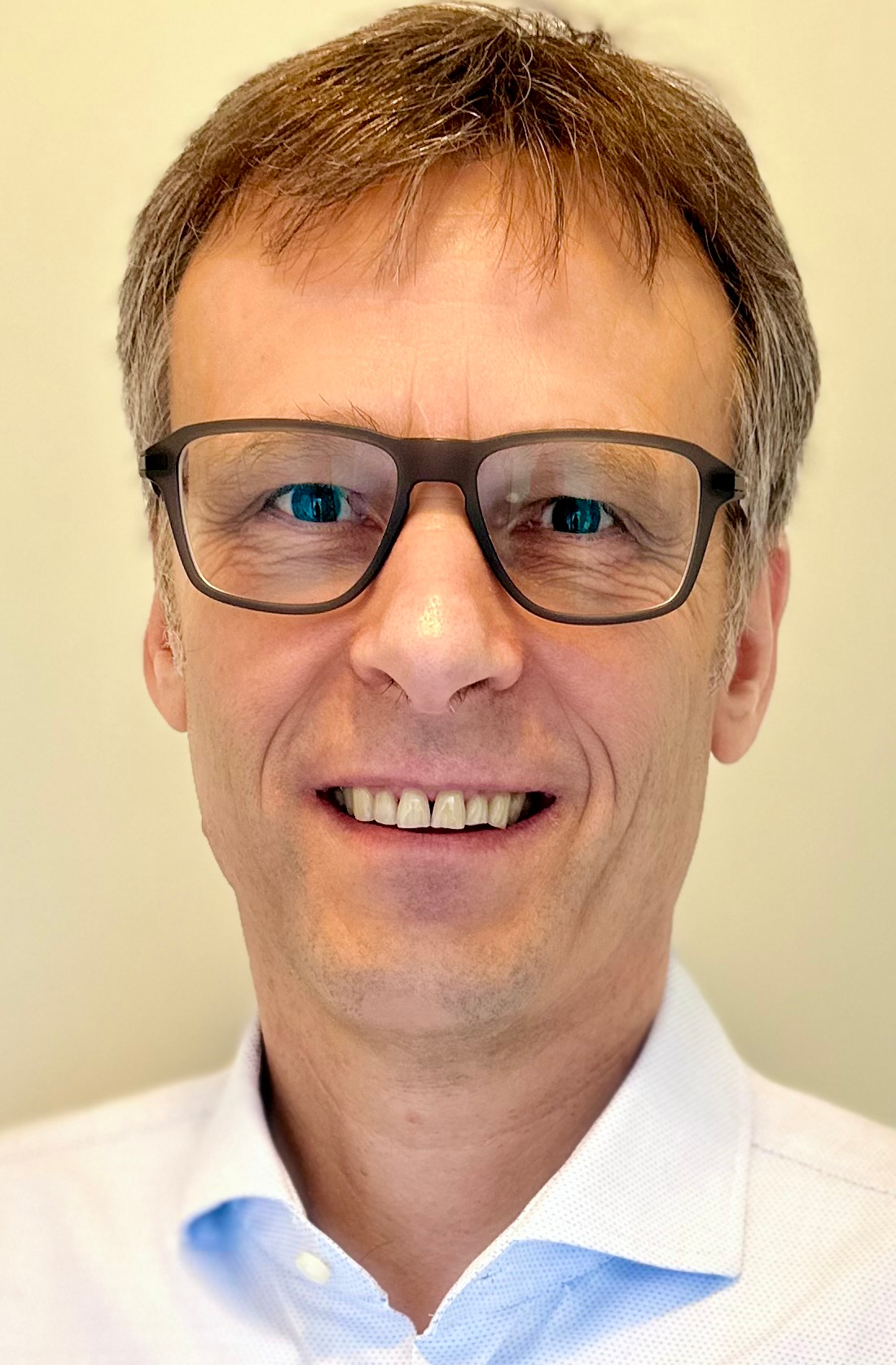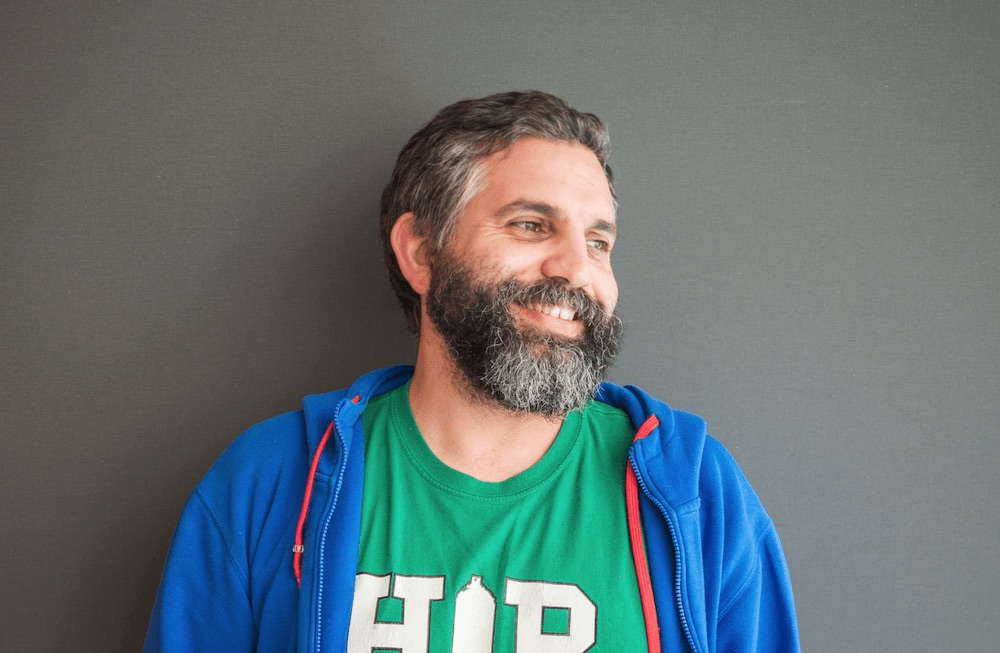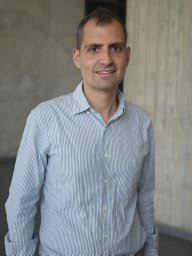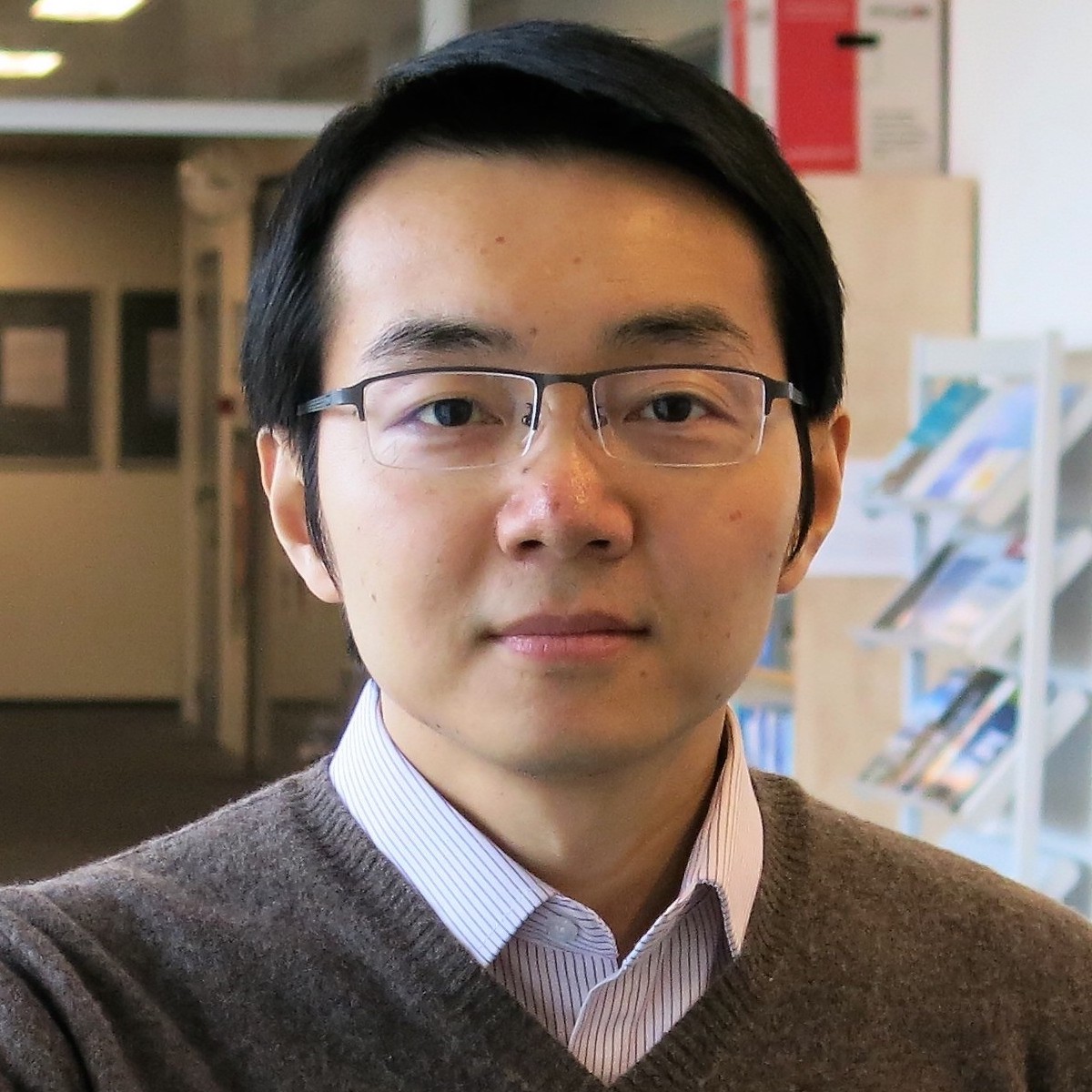Keynote
Main Conference
Keynote 1: Unlocking the Potential of AI at the Edge: Opportunities and Challenges
Pablo Rodriguez

Abstract:
The convergence of artificial intelligence and edge computing is reshaping industries, enabling real-time decision-making, enhanced privacy, and reduced latency. A key driver of this transformation is the ability to run lightweight AI models directly on edge devices, eliminating the need for constant cloud connectivity and opening new horizons for autonomous, efficient, and private AI applications.
In this keynote, we will explore the opportunities presented by running AI optimized models on edge devices, from enhancing mobile and IoT applications to enabling advanced AI inference in resource-constrained environments. We’ll dive into breakthroughs in model compression, quantization, and federated learning, showcasing how these technologies enable powerful AI capabilities within the constraints of edge hardware.
We will also address broader challenges and opportunities, including regulatory compliance with frameworks like the EU AI Act, ensuring secure and private AI deployments through confidential computing, and driving innovation in telecommunications and public sector solutions.
Bio:
Pablo Rodriguez is a creative entrepreneur, business leader, and computer scientist (h-index 70, twice Test of Time award). He is a Director at Google´s Office of the CTO (OCTO), with a focus on AI. Prior he was Ambassador for [X] — Google’s Moonshot Factory, and founding CEO of Alpha, Europe's first moonshot factory. Developing 10x science projects that will affect 100 Million+ people, be a force for good on the planet, and grow into new impactful businesses.
With 20+ years of networks and distributed systems experience, Pablo worked in several Silicon Valley startups (Inktomi, the #1 search engine before Google; and Tahoe Networks, building the first Edge routers for mobile networks). He also worked at Microsoft Research on p2p systems and distributed systems. Prior, he worked at Bell-Labs, NJ accelerating the mobile Web with Edge Computing solutions now adopted world wide.
At Telefonica he was VP of R&D and led its Product Innovation unit, putting research into practice, and driving ideas to early stage commercialisation with an innovation model now featured as a Harvard Business Review case. He launched the Global Video Content Delivery Network, now used to stream the Olympics or Champions League to hundreds of millions.
He has also co-founded the Data Transparency Lab, a privacy NGO, with MIT, and the Mozilla Foundation.
Before his tenure as business executive, Pablo received his PhD in Computer Science from the Swiss Federal Institute of Technology (EPFL) and has been an adjunct Professor of distributed systems at Columbia University, NYC.
He is an AI Ethics Board member to the Spanish Government, and has published a book on Artificial Intelligence — how it will change the world around you and your life. It has become a best seller in its category in Spain. His innovation work is also featured in the "Non-bullshit innovation" book by the founding editor of WIRED.
He has more than 200 publications and 30 patent inventions in data, networks, wireless and content distribution. He received the French “Prix de la Recherche” for research and innovation excellence. He is twice Test of Time award winner for lasting impact of his scientific work, Top40 Forbes Futurists, and a Fellow of the IEEE and ACM (recognizes top 1% computer scientists). He sits on the advisory board of Akamai, EPFL, Sony AI, and IMDEA Networks. He is also an angel investor in tech startups and incubated Koa Health as a moonshot in the digital therapeutics mental health space.
Keynote 2: Edge Clouds & AI in Digital Enterprises
Volker Hilt
Nokia Bell Labs

Abstract: Edge clouds, AI and communication networks play a key role in the transformation and digitization of today’s enterprise and industrial environments. These technologies enable processing of vast amounts of data, execution of low-latency and high bandwidth services, and the understanding and optimization of industrial and enterprise processes. This talk will discuss challenges and opportunities for research in this domain. A real-life example showcases the combination of research in multiple domains into an industry solution and its ongoing journey into a product. And we will discuss three specific research challenges and the approaches taken to address them.
Bio:
Dr. Volker Hilt is a Bell Labs Fellow and lab leader at Nokia Bell Labs, who is focused on creating
innovative technologies and new software solutions that address fundamental industry challenges.
Volker has made key contributions to AI/ML-based systems, high-performance cloud computing,
distributed edge clouds, large-scale content distribution, and multimedia communication systems.
His work has led to the creation of new innovative products, key product features, new venture
spinoffs, and widely adopted IETF standards. He has published over 100 peer-reviewed papers,
Internet drafts and RFCs and holds over 30 patents. Volker received his Ph.D. in Computer Science in
2001 from the University of Mannheim in Germany. He joined Bell Labs in Holmdel, NJ, USA in 2002
and moved to Bell Labs in Stuttgart, Germany in 2012.
Keynote 3: Arduino in the emerging field of Edge AI
David Cuartielles
Co-founder of the Arduino platform, Head of the Interaction Design Masters, Researcher at the Sustainable Digitalisation Research Centre at Malmö University, Sweden

Abstract: In this talk for SEC'24, David will briefly introduce the history of Arduino, will provide an overview of the community, the educational initiatives over the years, the technical ecosystem, and the challenges around open source hardware from the perspective of the Arduino platform. David will make emphasis on the tools and possibilities of Edge AI running on MCU.
Bio:
David Cuartielles, PhD in Interaction Design and MSc in Telecommunications Engineering is co-founder of the Arduino platform, and head of the Interaction Design Masters as well as researcher in the Sustainable Digitalisation Research Centre at Malmö University, Sweden. He is researching about the circular aspects of design, and the social value of digital technology. Has experience with large-scale prototyping processes and has participated in different EU projects dealing with the creation of open source hardware prototyping platforms. Currently he participates in the RIECS project, looking at the design of an infrastructure for EU-wide citizen science initiatives, and the DESIRE4EU one, prototyping bio-degradable microcontroller boards at scale. David has been awarded with the engineering SER prize of Sweden, the Sant Carles medal of Valencia, the FIUM award from Murcia, and the Luminary award of the EC among others.
Panel I: Unlocking Innovation at the Edge: Stories and Experiences
Abstract: Edge computing is transforming how data is processed, analyzed, and leveraged, enabling new possibilities across industries. As researchers and practitioners push the boundaries of this field, navigating the challenges and opportunities that come with it is crucial. This panel brings together leading experts in edge computing to share their experiences, insights, and the lessons learned throughout their journey. Attendees will gain valuable perspectives on the evolving landscape of edge computing, including key technological advancements, real-world implementations, and the critical aspects of collaboration between academia and industry.
Moderator
George Pallis
University of Cyprus

George Pallis is associate professor at the Computer Science Department, University of Cyprus. His research interests include Distributed and Internet Computing with particular focus on Big Data Analytics, and Cloud/Edge/Fog Computing. He is principal institutional investigator in research projects funded by EC, Research Promotion Foundation in Cyprus, and industry (e.g., Google) and has totally attracted more than 5.5M euro. Dr. Pallis has published over 100 papers in international journals (e.g., IEEE TKDE, IEEE TCC, IEEE TSC, ACM TOIT, Scientific Reports etc), magazines (e.g., CACM, IEEE Internet Computing) and conferences (e.g., INFOCOM, IPDPS, ICDCS, SEC, IoTDi, ICWSM, BIG DATA etc) and he is contributor of two international DIN (German Institute for Standardization) standards. Dr Pallis is appeared in the World’s Top 2% Scientists list published by Stanford University and he is golden core member of IEEE Computer Society.
Panelists
Lei Zhong
Toyota
Bio:
Lei Zhong is a Group Manager and Principal Researcher at the Information and Communication Planning Division of Toyota Motor Corporation. He leads the communication network group, focusing on wireless network research and standardization for connected vehicles. He is the chief delegate and holds various chair roles in standardization organizations such as 3GPP, IEEE, Wi-Fi Alliance, and AECC. His research interests include Wireless Networking, Edge Computing, Machine Learning, Connected Vehicles, Internet-of-things and Big Data. He has published over 60 technical papers and applied for over 30 patents in related fields. He is also serving as the Vice-Chair of the IEEE TCGCC Special Interest Group on Green Internet of Vehicles, the Editor of Elsevier Vehicular Communications, and the Editor of the IEEE Open Journal of the Computer Society.
Jeff White
Lead AI Factory and Edge AI Product – Solutions Platform, Product and Operations Dell Technologies

Bio:
Jeff is the Lead for AI Factory and Edge AI Product at Dell Technologies. Jeff leads the AI Factory
development and Edge AI. Jeff is responsible for the business and technical roadmaps of AI/Edge AI
including cluster design, automation, application enablement and security/networking.
Previously, Jeff was CTO for Dell’s Edge business and Dell’s Intelligent Connected Vehicle joint
innovation. Jeff led the research and development of Edge technologies for Dell’s product and operations.
His technology focus is on edge application execution characterization and management, edge
scheduling/control algorithm design, edge data management, AI/ML edge operations, AI/ML drift
detection and mitigation, edge networking optimization, and emerging machine reasoning control for
distributed platforms. He holds 16 patents in these areas.
Jeff has also held senior roles at early-stage artificial intelligence/machine reasoning-based robotic process
automation technology provider and served as CTO of Elefante Group, a stratospheric wireless
communications platform. He also held senior positions at Hewlett Packard Enterprise, Ericsson and
Alcatel-Lucent where he led technology initiatives, solutions development, business development and
services delivery. Prior to this Jeff worked at Cingular Wireless and BellSouth in technology and
operations roles.
Aaron Ding
TU Delft

Bio:
Aaron Ding leads the Cyber Physical Intelligence (CPI) Lab as tenured Associate Professor at TU Delft. He has supervised 100+ students and won EU research grants (€5M+€5.5M) as Consortium Director & PI by leading a series of international and national R&D projects (EU Horizon, Marie Curie ITN, German DAAD, EIT Digital, Tekes Finland) in tight collaboration with industrial companies of Nokia, Ericsson, Deutsche Telekom, Broadcom, Telia, NEC, Telefónica and WithSecure. He has over 17 years top R&D practices in EU, Switzerland, UK and USA. Prior to TU Delft, he has worked at TU Munich with Jörg Ott, at University of Cambridge with Jon Crowcroft, at Columbia University with Henning Schulzrinne. He has sabbatical at ETH Zürich with Adrian Perrig in 2023. His PhD is on Computer Science with Sasu Tarkoma (Helsinki) and Jon Crowcroft (Cambridge). Funded by the Nokia Foundation, vital part of his PhD programme is completed at the University of Cambridge and Columbia University in New York. Being an active member of ACM, IEEE, Springer and IETF, he is the founder of ACM EdgeSys, Associate Editor for ACM TIOT and Springer Nature Computing. He has served on the organizing and programme committees for numerous prestigious conferences including ACM SIGCOMM, ACM MobiCom, ACM UbiComp, ACM WWW, ACM CoNEXT, ACM MobiSys, ACM/IEEE SEC, IEEE INFOCOM. He is a recipient of the esteemed Nokia Foundation Scholarships.